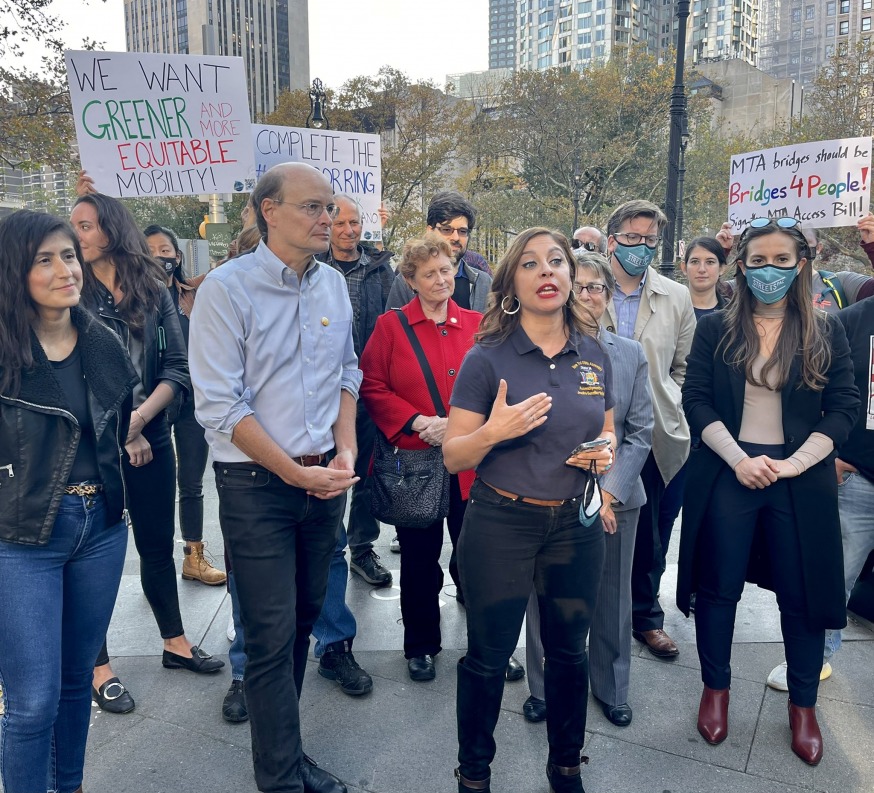
Gov. Kathy Hochul signed Assembly Member Jessica González-Rojas’s MTA bike access bill into law Tuesday about a month after the lawmaker and advocates called for Hochul’s backing at a rally by the Brooklyn Bridge (Assembly Member Jessica González-Rojas)
Dec. 29, 2021 By Allie Griffin
Gov. Kathy Hochul signed a Queens legislator’s bill into law Tuesday that requires the MTA to prioritize bicycle access on MTA bridges and in commuter train stations.
The legislation sponsored by Assembly Member Jessica González-Rojas requires the MTA to develop a strategic plan to promote both bike and pedestrian access on all MTA bridges and at commuter rail stations across the state. It also requires the agency to prioritize such access when planning new capital projects.
The new law — which was sponsored in the State Senate by Sen. Alessandra Biaggi of the Bronx — aims to change the MTA’s current policy that makes it illegal to ride bicycles over any of the seven MTA bridges in New York City — including five in Queens.
Cycling advocates said the new law is a step towards creating legal bike routes on the bridges — like the Bronx-Whitestone Bridge, Cross Bay Veterans Memorial Bridge, Marine Parkway–Gil Hodges Memorial Bridge, Robert F. Kennedy/Triborough Bridge and Throgs Neck Bridge in Queens.
“Bike riders have sought to cross the MTA’s seven bridges that connect NYC boroughs and to use bikes as a quick, non-polluting way to access public transit, for a long time,” Jon Orcutt, advocacy director at Bike New York, said in a statement. “We heartily applaud Governor Hochul, Senator Biaggi, and Assemblymember González-Rojas for taking a big step to fully integrate bikes into New York’s transportation systems, and look forward to working with the MTA in 2022.”
González-Rojas said bike access on bridges is needed given the increase in New Yorkers who are cycling.
“During the height of the pandemic, we saw cycling increase by 33 percent which means almost a million New Yorkers are cycling,” she said in a statement. “Increasing access for pedestrians and cyclists to MTA bridges is good for public health, good for the environment, and good for workers including deliveristas who use cycling for work.”
The legislation also calls for extra members — who are experts on bike and pedestrian access — to be added to advisory councils for New York’s transportation systems — including one such new member to the Long Island Rail Road Commuter’s Council, one to the Metro-North Rail Commuter’s Council, and three to the New York City Transit Authority Advisory Council.
“If New York is going to adequately recover [from the pandemic] we must bring the voices of cyclists to the table when capital plans are developed by the MTA,” González-Rojas said.
The new law also requires the MTA to produce a report on bike and pedestrian access within the transit system. The report must also include information on how the agency has incorporated such access in any new projects it undertakes. The MTA will need to submit the report within a year to the governor and state legislature and make it available online.
